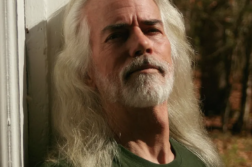I FIRST encountered Sarah Schulman in January 1996, when she was a speaker at “Literature in the Age of AIDS” in Key West. That seems a lifetime ago. We met again a couple of years later at UNC-Asheville, where she was beginning to articulate her ideas about “familial homophobia,” the central idea in her remarkable book Ties That Bind (2009).
Schulman has spent her whole adult life as a journalist, novelist, playwright, and activist. This year, she has published two new books, a novel called The Cosmopolitans, which came out in the spring, and the powerful nonfiction book titled Conflict is Not Abuse, due out in October. Her integrity as an artist and a citizen makes her a singular presence in American culture.
What follows is excerpted from a much longer transcript.






